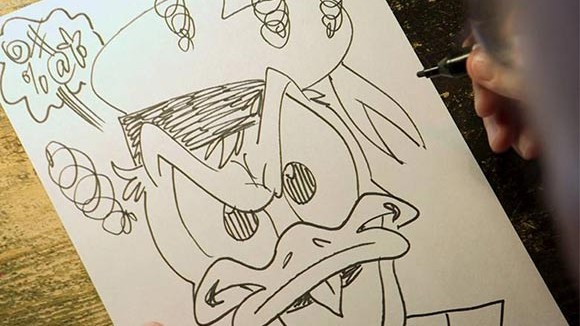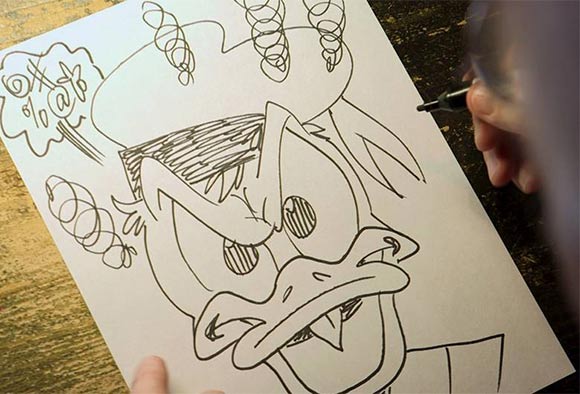

Only In Europe: A 90-Minute Donald Duck Documentary

The Donald Duck Principle is a 90-minute German/Norwegian documentary produced last year in honor of the Disney duck’s 80th anniversary. Directed by Edda Baumann-von Broen and Hasko Baumann, the film attempts to make sense of the impassioned relationship that Europeans have with the unlucky, ill-tempered cartoon character.
The European interest in Donald stems more from the character’s appearances in comics books than his original form as an animated star, and the documentary includes input from his comic-obsessed fans, among them Austrian painter Gottfried Helnwein, Norwegian author Øyvind Holen, and French cartoonist/Métal Hurlant co-founder Jean-Pierre Dionnet, as well as Duck comic artists on both sides of the pond like Don Rosa and Volker Reiche.
Here is the film’s official synopsis:
The Donald Duck Principle examines the tremendous success of the small, short-tempered and often luckless duck, and applies Donald’s loser topos to today’s world. Like no other figure, Donald Duck shows us what it means to be human. No matter what he does, everything goes wrong. Yet he is a master in the art of rebounding. In many countries, Donald Duck is more popular than Mickey Mouse. He reminds us of our own fears and weaknesses, but also of our ability to bounce back. Beginning with close-ups of the comic figure, the film delves deeper into the Donald Duck universe. While the comics themselves brim with excitement, so do the interpretations of numerous famous scholars. We let artists like Don Rosa and Gottfried Helnwein and others analyze the fascinating psyche of Donald Duck and then direct the viewers’ attention to the big picture: What role do losers play in today’s culture, where it’s all about self-optimization?
There are English, German and French versions of the film, though the English version doesn’t appear to be available for ready viewing. A French version of the film can be watched online (link taken down due to potential malware). Perhaps it’s the language barrier, but it’s not readily apparent to me what the second half of the film has to do with Donald Duck, or if it’s even the same documentary, but they would seem to be connected in some manner.
